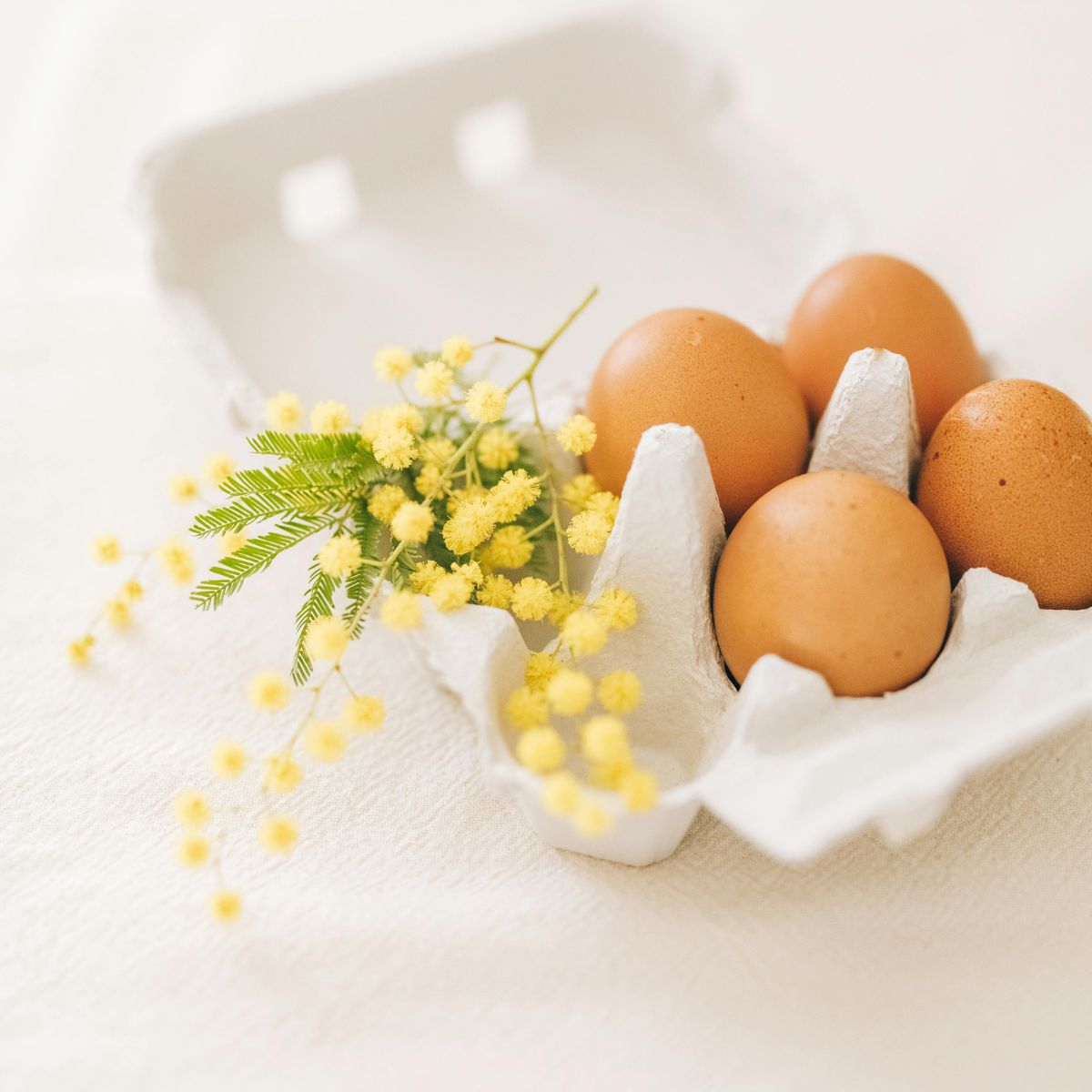Mitochondria for Female Fertility - The Best Diet & Lifestyle Strategies for Mitochondrial Health
If you’re female and on your trying to conceive journey, it’s pretty likely you’ve been told that age affects your fertility (maybe more than once, and ouch we know it’s not a fun realisation).
One of the lesser-known but crucial factors behind this is the health of your mitochondria - the tiny powerhouses inside your cells. Understanding why mitochondria matter for female fertility can help you take steps to support your reproductive health - so let’s unpack the why and what you can do about it.

what are mitochondria and why do they matter for fertility?
Mitochondria are like the energy factories or 'batteries' of your cells. They produce the fuel (called ATP) that cells need to function. Mitochondria also have their own DNA which is referred to as mitochondrial DNA. Inside mitochondrial DNA are the genes that mitochondria need to make energy.
Interestingly, your egg cells (oocytes) contain around 100,000 mitochondria - 10-100 times more than other cells in the body.
Your eggs are *very* energy hungry.
This is because eggs need a lot of energy to mature, successfully divide their chromosomes, get fertilised, and then support early embryo growth.
The embryo inherits its mitochondria from your egg, meaning those mitochondria have ongoing importance to pregnancy too!
The quality and number of mitochondria in your eggs have a huge impact on your fertility. When mitochondria work well, your eggs tend to be healthier and have a better chance of leading to a successful pregnancy.
But when mitochondrial function declines - which (sigh) happens naturally as part of ageing - egg quality drops, and fertility can decrease.

how does mitochondrial health affect egg quality?
As females get older, the mitochondria inside their eggs often become less efficient and this can impact on egg health. This includes producing less energy and generating more harmful byproducts called reactive oxygen species (ROS), which can damage DNA and other parts of the cell.
Mitochondrial dysfunction in eggs can lead to:
- Less energy available for the egg - eggs don’t have the fuel they need to mature and divide properly.
- Oxidative damage - increased ROS can harm the DNA and proteins inside eggs, increasing the chance of chromosomal errors.
- Poor communication - each egg lives inside a follicle surrounded by other cells, and the egg depends on those supporting cells. Poor-functioning mitochondria can disrupt this important relationship.
- Activation of cell death - damaged mitochondria can trigger programmed cell death, resulting in fewer viable eggs.
All these factors contribute to reduced fertility and may create increased challenges during IVF or natural conception, because there may be less healthy, energised eggs available.

what does the research say about supporting the health of mitochondria for fertility?
The good news is that science is uncovering ways to support and even improve mitochondrial function to optimise female fertility.
1. antioxidant supplements
Antioxidants help neutralise ROS and protect your cells from damage. Supplements including coenzyme Q10 (coQ10), alpha lipoic acid, vitamin C, vitamin E, melatonin and resveratrol have shown potential in improving mitochondrial function. These compounds help reduce oxidative damage and may delay age-related decline in egg quality.
Coenzyme Q10 is actually a little bit of a multi-tasker when it comes to your mitochondria, because it not only acts as an antioxidant but is also a component involved in mitochondrial energy production. That is, it's both a protector and a contributor to the work your mitochondria are doing!

2. supplementing specific NAD+ precursors (such as nicotinamide riboside)
NAD+ is a vital cofactor that supports mitochondrial energy production and repair. As we age, the level of NAD+ in our body naturally declines, which may affect the ability of our cells to remain healthy.
Studies in animals suggest that supplements boosting NAD+ levels can restore mitochondrial function, improve energy output, reduce oxidative stress, and enhance egg quality - especially in ageing ovaries.
3. mitochondrial replacement techniques
You may have heard on the news about experimental treatments, such as transferring healthy mitochondria into eggs, are being investigated to restore mitochondrial function.
These are not yet widely available and to be honest, there's a whole host of medical & ethical issues that need to be ironed out in utilising this technology more widely - but it’s worth mentioning because it represents exciting future possibilities, especially for people who are also affected by specific mitochondrial diseases.

4. food and lifestyle
Let’s not forget about the foundational impact that what we eat and our lifestyle factors can have on our precious mitochondria.
Eating an abundance of plant foods rich in antioxidants, regular movement, managing stress, getting good quality sleep and avoiding environmental toxins all support mitochondrial function and overall reproductive health.
how to support my mitochondrial health for fertility
If you’re trying to conceive - and we hate to go on about it, but especially if you’re concerned about your fertility in your mid-30s and beyond - focusing on mitochondrial health could be an important piece of the puzzle.

Practical steps to support those little batteries inside your egg cells include:
- Include a variety of plant foods on a daily basis - this means a colourful array of fruit & vegetables, plus don’t forget your herbs & spices too for an extra antioxidant boost
- Use unsaturated, anti-inflammatory fat sources like extra virgin olive oil, nuts, seeds and avocado, and don’t forget your oily fish like salmon for omega 3
- Find ways of moving your body that you love, and make time for them in your routine (we know it ain’t always easy!)
- Prioritise getting quality sleep the best that you can so you’re giving your cells a chance to recover and repair
- Consider including targeted antioxidant supplements and NAD+ precursors in your preconception supplement routine to optimise the health of your egg cells as they undergo their last phases of growth and development (before they're ovulated!)
Mitochondria play a key role in the energy and health of your eggs, potentially impacting fertility outcomes and the chance of a successful pregnancy.
Supporting mitochondrial function through antioxidants, targeted supplements, and healthy lifestyle habits are key strategies for optimising preconception egg health.
References
Brown, K., Xie, S. X., Qiu, X., Mohrin, M., Shin, J., Liu, Y., Zhang, D., Scadden, D. T., & Chen, D. (2019). NAD+ repletion rescues female fertility during reproductive ageing. bioRxiv. https://doi.org/10.1101/721985
Hidalgo-Gutiérrez, A., González-García, P., Díaz-Casado, M. E., Barriocanal-Casado, E., López-Herrador, S., Quinzii, C. M., & López, L. C. (2021). Metabolic targets of coenzyme Q10 in mitochondria. Antioxidants, 10(4), 520. https://doi.org/10.3390/antiox10040520
Ju, W., Zhao, Y., Yu, Y., Zhao, S., Xiang, S., & Lian, F. (2024). Mechanisms of mitochondrial dysfunction in ovarian aging and potential interventions. Frontiers in Endocrinology, 15, Article 1361289. https://doi.org/10.3389/fendo.2024.1361289
Liu, J. (2008). The effects and mechanisms of mitochondrial nutrient α-lipoic acid on improving age-associated mitochondrial and cognitive dysfunction: An overview. Neurochemical Research, 33(2), 194–203. https://doi.org/10.1007/s11064-007-9403-0
Mani, S., Srivastava, V., Shandilya, C., Kaushik, A., & Singh, K. K. (2024). Mitochondria: The epigenetic regulators of ovarian aging and longevity. Frontiers in Endocrinology, 15, Article 1424826. https://doi.org/10.3389/fendo.2024.1424826
Nagai, T., Shimosato, T., Nomura, D. K., & Maeda, A. (2020). NAD+ repletion rescues female fertility during reproductive aging. PLoS Biology, 18(4), e3000645. https://www.ncbi.nlm.nih.gov/pmc/articles/PMC7063679/
Shang, Y., Song, N., He, R., & Wu, M. (2024). Antioxidants and fertility in women with ovarian aging: A systematic review and meta‑analysis. Advances in Nutrition, 15(4), 100273. https://doi.org/10.1016/j.advnut.2024.100273
Subirá, J., Soriano, M. J., Del Castillo, L. M., & de Los Santos, M. J. (2025). Mitochondrial replacement techniques to resolve mitochondrial dysfunction and ooplasmic deficiencies: Where are we now? Human Reproduction, 40(4), 585–600. https://doi.org/10.1093/humrep/deaf034
Wang, Z.-H., Wang, Z.-J., Liu, H.-C., Wang, C.-Y., Wang, Y.-Q., Yue, Y., Zhao, C., Wang, G., & Wan, J.-P. (2024). Targeting mitochondria for ovarian aging: New insights into mechanisms and therapeutic potential. Frontiers in Endocrinology, 15, Article 1417007. https://doi.org/10.3389/fendo.2024.1417007
Zhao, X., & Zhang, Y. (2024). Supplementation with NAD+ and its precursors: A rescue of female fertility and ovarian aging. Life Sciences, 323, 121285. https://doi.org/10.1016/j.lfs.2023.121285


